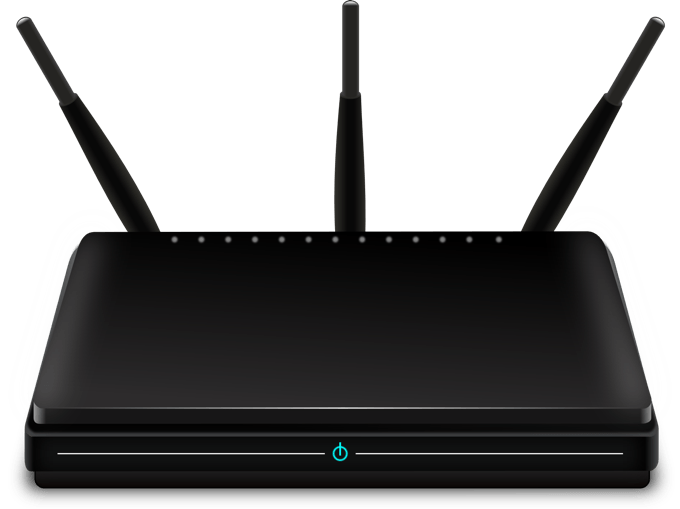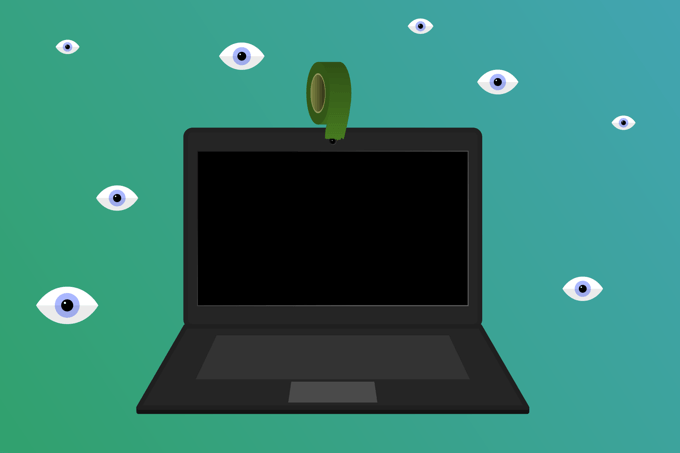Using the Internet for business has become a necessity. However, it also increases the risk of security threats and scams.
Your Internet router is the link between the devices you use and the outside world. It is also in a position to be exploited by hackers.
Don’t think that your home system is safe or too small for the bad guys to target. In April 2018, the US Department of Homeland Security warned that Russian hackers were attacking ISPs, home routers, and firewalls.

Setting up a secure home network is a necessity to protect your identity and data. There is no way to be 100% secure. However, there are several preventative measures you can take with your network security to make yourself a more difficult target to attack.
Make Sure Your Network Security is Enabled
Most homes have multiple devices connected to their network, such as smartphones, gaming systems, TVs, computers, wearable devices, and tablets. Each connected device must have the latest operating system, security software, and web browsers.
Malicious code, malware or hackers that gain access to one Internet-enabled device will have the ability to infect or steal private information from any other device connected to the same network.
Secure Your Router
More than three-quarters of households in North America use Wi-Fi as their primary connection to the Internet. When you added Internet connectivity, your provider installed a modem and router (or a combination), a name for your network, and a password.

Do not use the default username and password. Hackers can gain access to your router model with a simple Google search. Once they have access, they can reset your password, rename your network, and change any configurations from the available options.
Follow the steps below to improve your wireless network security:
- Change your Service Set Identifier (SSID): This is the name assigned to your Wi-Fi network. Make it more difficult for hackers to identify the type of router you have and exploit it for any known vulnerabilities. Don’t use a name that includes any personal information or any other identifiable data that is easy to interpret. Use a name that is unique to you and difficult to guess.
- Create a Password for Guests: If you have frequent guests to your home, create a separate network for them to use.
- Change the Router Preset Passphrase: Each router comes with a default passphrase, also known as a WPA or Security Key. This is the password that connects you to the wireless network. Use a strong password that is at least 12 characters long.
You might want to also choose higher security options. If your provider offers WPA2, use this level of security. The next best network security options are WPA, with WEP being the least secure.
Keep Your Software Updated
Software is updated frequently to include security fixes and critical patches for newly discovered vulnerabilities and threats. One of the most effective steps you can take to improve cybersecurity for your home office network is to update your software regularly.
Install a Network Firewall

Installing a firewall on your home network will defend it against threats. It will guard against unauthorized access attempts and block malicious traffic.
Most routers come with a built-in firewall. Some have additional network security features such as a distributed denial-of-service (DDoS) defense, web-filtering, and access controls.
Make sure that you enable your firewall as some are turned off by default. If you have questions or concerns, contact your Internet service provider for assistance.
Remove Unused Software & Services
Remove any software or services on your network you aren’t using to reduce network security risks. Many new computers come pre-installed with trial applications and software programs called bloatware.
Not only can bloatware reduce your network devices’ performance, but it can also violate your privacy.
Block Your Camera

We have all heard the quasi-joke that Big Brother is Watching You. Unfortunately, it isn’t a joke anymore.
Many websites and apps will ask for access to your computer’s microphone and webcam. Unless you are 100% certain that it is a safe and trusted source, don’t grant the access. If you do, someone, somewhere, is watching you.
To make sure that no one, including those who don’t ask permission, has access to your webcam, block your camera, put a piece of tape or a stamp over it to protect yourself.
Just in Case – Back Up Your Data
Following the steps above will reduce the risks of attacks on your home or office network. Unfortunately, there is nothing you can do to be 100% safe from hackers.
Businesses need to regularly backup their data to protect against infection, loss, or corruption. Use a cloud-based service, external media, or a third-party backup application to automate and simplify the process. Don’t forget to encrypt the backup to protect it.
Then, if you do get hacked, you can at least recover.
Related Posts
- How to Repair a Corrupted User Profile in Windows 11
- Preparing for Windows 10 End of Support: Upgrading to Windows 11
- How to Access and Change Your WiFi Router Settings (2025 Edition)
- How to Install the Latest Large Language Models (LLMs) Locally on Your Mac
- How to Find Circular References in Microsoft Excel